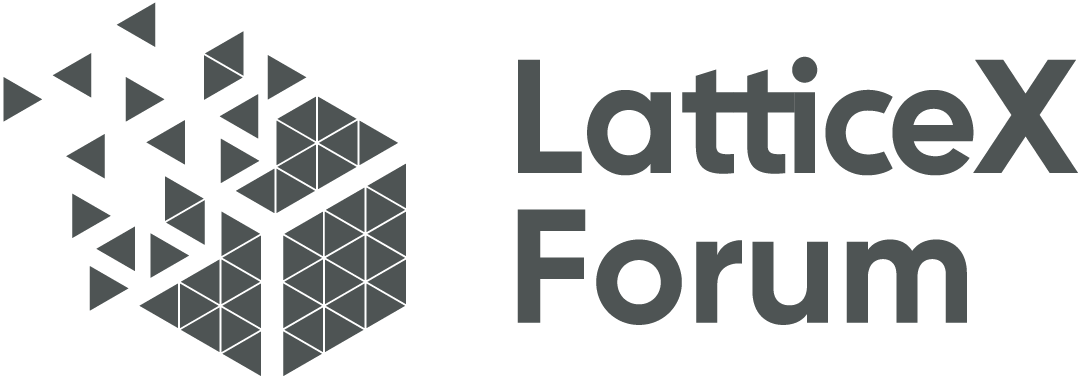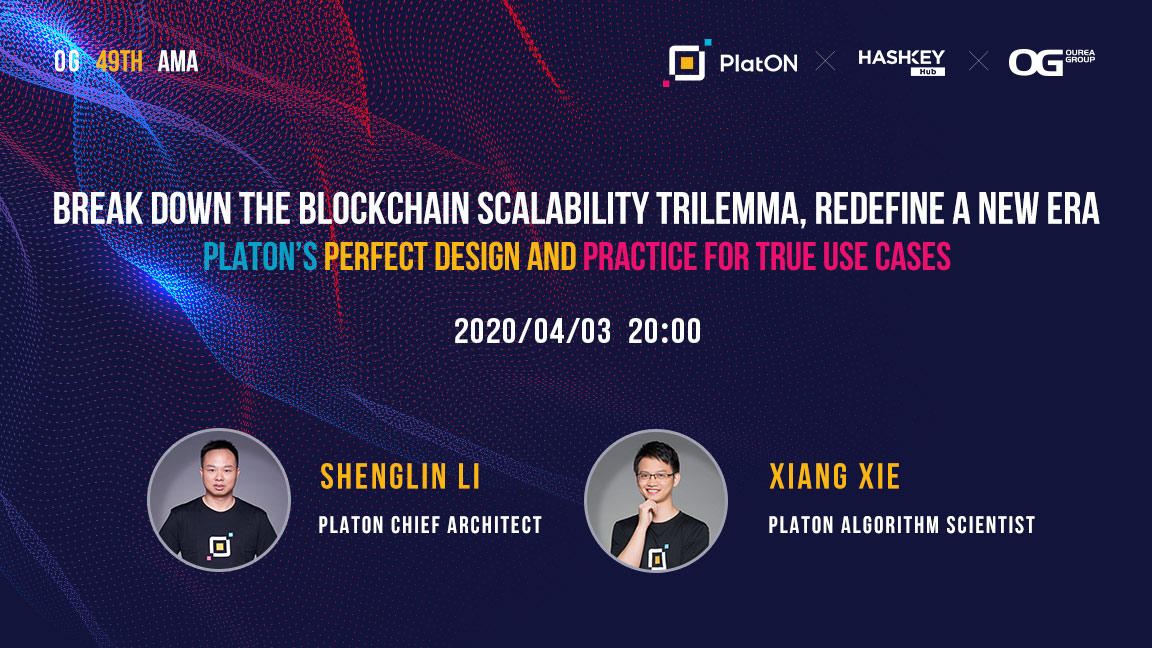On Apr.3, 2020, PlatON, HashKey Hub and Ourea Group jointly hosted an online AMA focus on PlatON’s design and practice for true use cases and the trade-off solution that addresses the blockchain scalability trilemma. PlatON Chief Architect Shenglin Li and Algorithm Scientist Xiang Xie talked about blockchain, cryptography, PlatON’s positioning, core aspects of PlatON’s privacy-preserving computation deeply.
What Should be the Correct Interpretation of Blockchain?
Mr. Li: Frankly, so far, most projects can’t tell what blockchain is used for and what the true mission and vision are. In my opinion, blockchain is not only an emerging technology, and it doesn’t make sense to seek for the development and breakthrough of technology without the consideration of engineering.
We start from being a financial infrastructure for massive commercial use case to address the limits in today’s and even tomorrow’s digital world. Nowadays, due to the high time delay and low efficiency. the financial systems need to be reconstructed. The vast range of data assets are blocked to be applied legally and monetized. The next-generation network architect and even the governance paradigm are expected to be redefine and revolutionized by blockchain. Under such circumstance, we believe it is of great significance to build an infrastructure for privacy-preserving computation and the distributed economies. PlatON aims at building a cryptography-based decentralized privacy-preserving computation to verify the correctness of computation to achieve the non-interactive proof computation scalability proposal through cryptography algorithms, and ensure the data privacy to safely perform computation in a public network environment.
Compared to Ethereum 2.0, Polkadot and Cosmos, What’s the Differences and Strengthens of PlatON from the Standpoint of Its Main Chain and Parallel Chains?
Mr. Li: Ethereum applies sidechain for dilatation, and Polkadot and Cosmos are heterogeneous multi-chain, while PlatON aims at serving as the infrastructure of computing and settlement for private data assets. Though we don’t focus on cross-chain, we may adapt cross-chain for a flourish PlatON ecosystem. PlatON will apply sub-chain protocol for cross-chain, mainly focus on interoperability of data computing and settlement.
How Do You Think about the Balance between Privacy-Preserving and Efficiency? Many People Think that Data Belongs to Users, There won’t be Maximal Commercial Value of Data.
Mr. Li: I’m just wondering whether if this opinion comes from the sentence that “Chinese usually prefer convenience rather than privacy.” I’m to be honest not agree with this opinion. Everyone has the right to control and use data, and privacy can’t be traded for convenience. Efficiency is by no means the excuse of privacy infringement and data abuse.
PlatON’s privacy-preserving computation and Privacy AI framework can train and infer AI without privacy disclosure, to utilize the value of data maximally on top of ensuring the data privacy.
How Do You Think About the Evolution of Internet and Blockchain? Will They Combine or Develop Independently?
Mr. Li: Firstly, I think Internet should be the information infrastructure for the whole world, and blockchain is just an overlay network built on Internet. They are totally different roles.
The decentralized network represented by blockchain is surely a trend, and the basic architecture and infrastructure for the distributed computation and economies in the future. It facilitates the value discovery and circulation of computing power and data assets.
Just like what I said before, the centralized platforms of today’s Internet will integrated and even a node of the whole decentralized overlay network.
It Seems that TEE has Border Security Issues, and Low Computing Cost even though as Well. Someone Said the There will be 100 times Performance Loss of General Solutions Compared to the Hardware Solutions. How Do You Think about It?
Dr. Xie: Actually there is no standard to evaluate the performances of privacy-preserving technologies. And I also think there will be performance evaluation without specific preconditions and use cases. It’s a completed process to achieve privacy-preserving, and related technologies including cryptography technologies, TEE, Federated Learning, etc. have their own merits and demerits, and are suitable for different use cases and requirements. From a standpoint of commercial practice, different use cases have different requirements for privacy-preserving technologies, resulted in different costs including economic cost and credit cost. The final solution should be design according to the requirements and use cases.
PlatON, based on cryptography, has been trying different privacy-preserving technologies for different requirements and use cases. It takes time to deliver the comprehensive and all-exclusive solutions.
Can You Introduce PlatON’s AI Solution from the StandPoints of Technology and Business?
Dr. Xie: Big data and AI technologies cover all specific industries and fields, and the traditional big data and AI technologies are facing the bottlenecks due to data privacy.
The basic model of AI technologies is training diversified data to win the models, then apply the models in different use cases. As data is a special asset, seldom does a company collect all data and share data with each other. However, the diversity of data determines the accuracies of models, and then determines the cost and risk of businesses.
Privacy-preserving computation technology can train and infer AI models without data disclosure, to utilize the data value maximally on top of ensuring the data privacy. Combined with blockchain as the infrastructure for distributed economies, privacy-preserving computation is the public infrastructure for the whole digital era.

